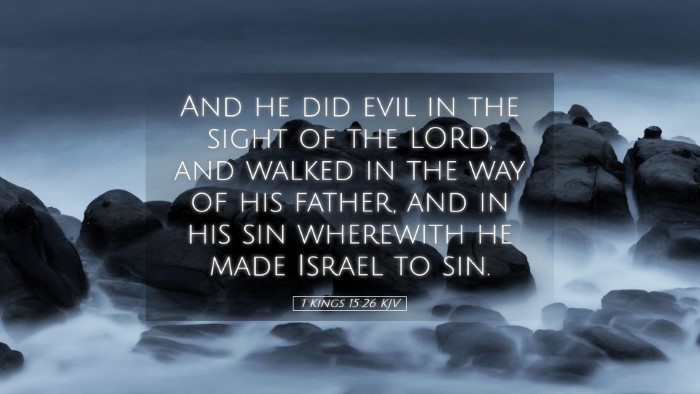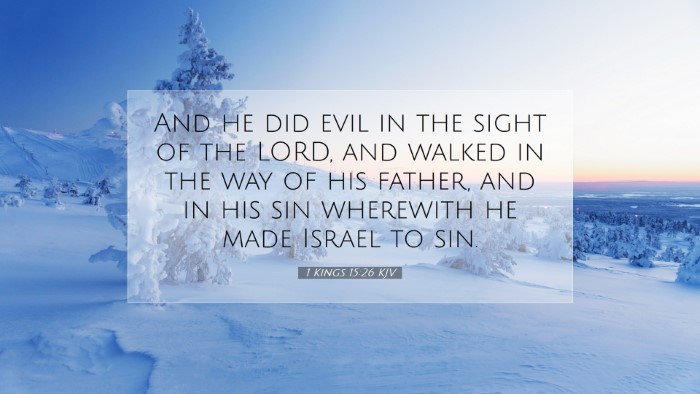Old Testament
Genesis Exodus Leviticus Numbers Deuteronomy Joshua Judges Ruth 1 Samuel 2 Samuel 1 Kings 2 Kings 1 Chronicles 2 Chronicles Ezra Nehemiah Esther Job Psalms Proverbs Ecclesiastes Song of Solomon Isaiah Jeremiah Lamentations Ezekiel Daniel Hosea Joel Amos Obadiah Jonah Micah Nahum Habakkuk Zephaniah Haggai Zechariah MalachiVerse
1 Kings 15:1 1 Kings 15:2 1 Kings 15:3 1 Kings 15:4 1 Kings 15:5 1 Kings 15:6 1 Kings 15:7 1 Kings 15:8 1 Kings 15:9 1 Kings 15:10 1 Kings 15:11 1 Kings 15:12 1 Kings 15:13 1 Kings 15:14 1 Kings 15:15 1 Kings 15:16 1 Kings 15:17 1 Kings 15:18 1 Kings 15:19 1 Kings 15:20 1 Kings 15:21 1 Kings 15:22 1 Kings 15:23 1 Kings 15:24 1 Kings 15:25 1 Kings 15:26 1 Kings 15:27 1 Kings 15:28 1 Kings 15:29 1 Kings 15:30 1 Kings 15:31 1 Kings 15:32 1 Kings 15:33 1 Kings 15:34

